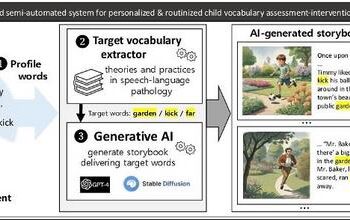CHICAGO — Heart disease is the leading cause of death among men, and being a father may put men at an even greater risk of poor heart health later in life, reports a new study from scientists at Northwestern University and Ann & Robert H. Lurie Children’s Hospital of Chicago.
- Among fathers, heart health was worse for men who became fathers under the age 25
- First U.S. multiethnic longitudinal study to analyze cardiovascular health outcomes of fathers
- Results differed by race and ethnicity subgroups
- Age-adjusted rate of death for Black fathers was lower than for nonfathers
- ‘Fatherhood may be protective for Black men’
CHICAGO — Heart disease is the leading cause of death among men, and being a father may put men at an even greater risk of poor heart health later in life, reports a new study from scientists at Northwestern University and Ann & Robert H. Lurie Children’s Hospital of Chicago.
The study of 2,814 men between the ages of 45 and 84 found cardiovascular health in older age was worse for fathers compared to nonfathers. Study participants’ heart health was rated based on their diet, physical activity, smoking habits, weight, blood pressure, and level of lipids and glucose in their blood.
“The changes in heart health we found suggest that the added responsibility of childcare and the stress of transitioning to fatherhood may make it difficult for men to maintain a healthy lifestyle, such as a healthy diet and exercise,” said corresponding author Dr. John James Parker, an internist, pediatrician and assistant professor of pediatrics and general internal medicine at Northwestern University Feinberg School of Medicine.
“We really need to study fathers as a unique population and track men’s health outcomes as they become fathers. Cardiovascular health is especially important since the health behaviors and factors are all modifiable.”
The study was published as a peer-reviewed preprint earlier this month in the journal AJPM Focus with a more finalized version publishing soon.
Fathers have worse heart health but lower death rates
Despite fathers in the study having worse hearth health in older age, the study found they actually have lower rates of death than nonfathers. Parker said this conflicting association could be because fathers may have a more robust social support system, and social connectedness has been linked with lower mortality.
“Fathers may also be more likely to have someone as their future caretaker (i.e., their children) to help them attend medical appointments and manage medications and treatments as they get older,” Parker said. “We also found that fathers had lower rates of depressive symptoms than nonfathers, so mental health may be contributing to the lower age-adjusted death rates in fathers.”
The study included men who self-identified as Black, Chinese, Hispanic or White, and the age-adjusted rate of death for all Black fathers was lower than for Black nonfathers, the only racial and ethnic subgroup with this association.
“Fatherhood may be protective for Black men,” Parker said. “Maybe becoming a father helps promote a healthy lifestyle for Black men. Studying this association further could have important public health implications.”
Previous studies that evaluated fatherhood, cardiovascular health, cardiovascular disease and mortality have not included racially and ethnically diverse populations and lacked comprehensive cardiovascular health evaluation. This study is novel because it included men from the Multi-Ethnic Study of Atherosclerosis (MESA).
This study also examined influence of the age men transition to fatherhood on heart health and disease outcomes. Interestingly, men who became at younger ages (25 years old and younger) — especially Black and Hispanic men — had worse heart health and high death rates and may benefit from focused clinical and public health attention.
“If you’re under 25, you may be less financially stable, your brain may be less mature, and, especially for racial and ethnic minorities, you may have lower-paying jobs with fewer benefits and limited leave policies,” Parker said. “All of this can make it harder to focus on your health. There are a lot of public health interventions for young mothers, but no one has ever really looked at young fathers in this way.”
‘A father’s health has a major influence on their family’
Since most men in the U.S. are fathers, identifying some of the explanations for the associations among health, disease and fatherhood could have important health implications for men, especially for men of color, the scientists said.
“A lot of times we focus on the health of mothers and children, and we don’t even think of fathers, but their health has a major influence on their family,” said Parker, citing previous research that found higher obesity rates among partners if their spouse was obese. “To improve the health of families, we need to consider the multi-directional relationship among mothers, fathers, other caregivers and children.”
The study also found a higher smoking rate among fathers, which Parker said is surprising because other studies have shown many fathers quit smoking when they have kids.
“This study looked at older fathers, so it’s possible men might quit smoking when they become fathers but then later, maybe they become more stressed and take up the habit again,” Parker said. “Either way, we should look at what’s happening with smoking rates because smoking is a leading cause of preventative death and if a father is smoking it will influence their families as well.”
The scientists defined study participants’ cardiovascular health using the American Heart Association Life’s Essential 8 scores (excluding sleep). Men were categorized as either fathers (82% study participants) or nonfathers based on an interview in which participants were asked to list any children’s ages and medical conditions. Men who did not list any children were categorized as nonfathers.
Other Northwestern study authors include Dr. Craig Garfield, Clarissa Simon, Laura Colangelo and Norrina Allen.
Journal
AJPM Focus
Article Title
Fatherhood and Cardiovascular Health, Disease and Mortality: Associations from the Multi-Ethnic Study of Atherosclerosis
Discover more from Science
Subscribe to get the latest posts sent to your email.



